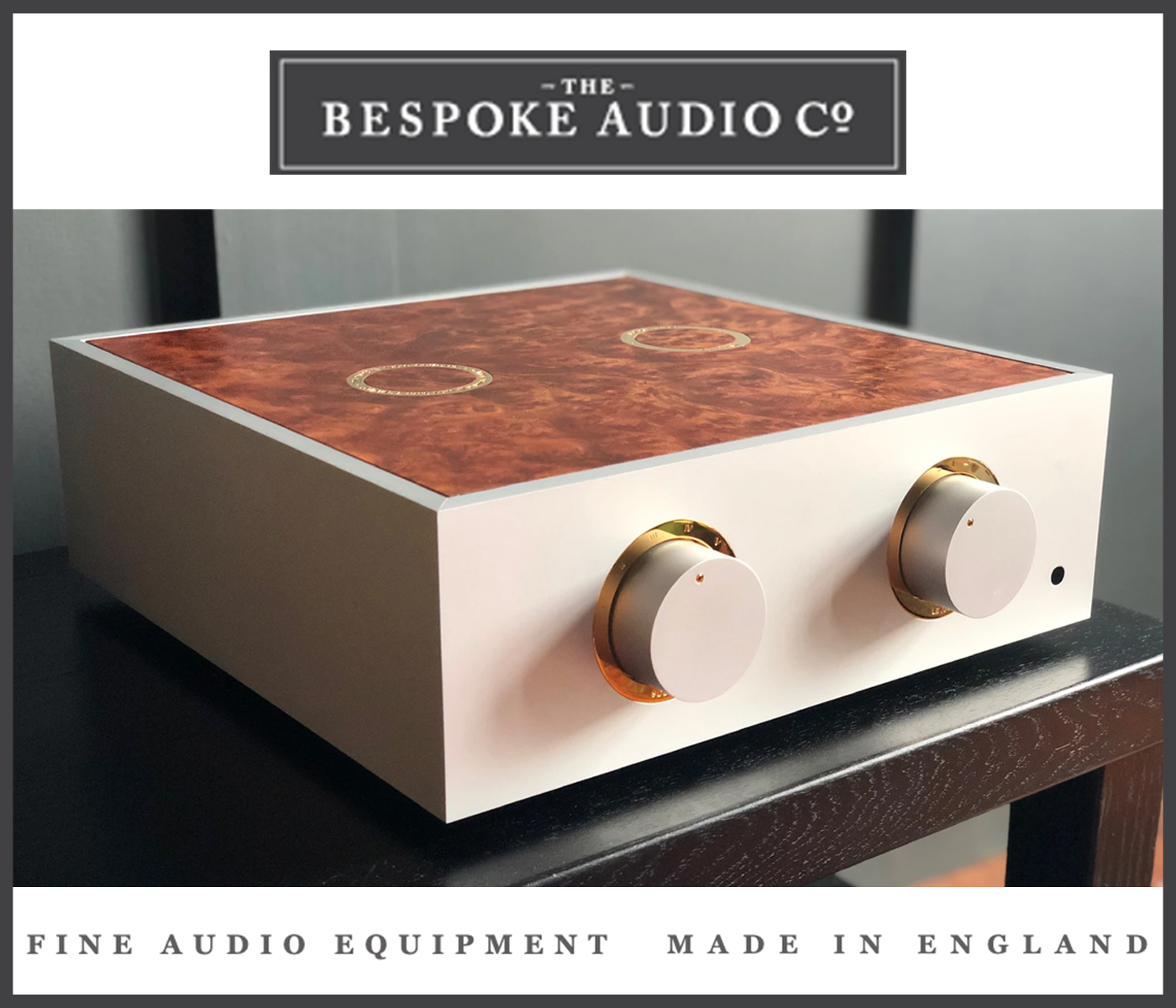As a hifi hardware manufacturer, MoFi is a brand that flies under the radar more than most, where in recent years it’s been quietly building up a well thought through product portfolio, mostly aimed at vinyl replay, with loudspeakers now added to the mix.
And in many ways it makes complete sense for MoFi to get in on the hifi act, as let’s not forget its Mobile Fidelity Sound Labs parent brand makes some of the finest vinyl and digital recordings on earth via its mastering lab, so offering the right kit to play them on is a logical step for a company that’s so invested in audio quality.

The StudioDeck’s purposeful looks reveal its pro heritage and the 10″ tonearm ensures generous plinth dimensions at 500mm by 362mm wide/deep
Thankfully what MoFi has not done is simply tweak and rebadge one of its industry stablemates’ decks, preferring to create its own design from the ground up, recruiting Allen Perkins of Spiral Groove fame as lead engineer. And this is an approach we’ve seen before from MoFi, with its phono stages designed by the much missed audio guru Tim de Paravicini and new SourcePoint loudspeakers from the pen of industry legend Andrew Jones, previously of ELAC, TAD and KEF fame.
Pick a package
The StudioDeck is the cheaper model of two turntables MoFi offers, sitting below its UltraDeck which sports a thicker platter, more refined plinth and upgraded tonearm wire, with prices starting at £2,499.

Smoke coloured dust cover adds a nice retro vibe while protecting the deck
I say starting because each model can be specified in basic guise or ‘+’ spec, with a choice of three MoFi cartridges (StudioTracker, UltraTracker and MasterTracker, in ascending order).
We opted for the cheaper of the three StudioDeck + packages with a StudioTracker cartridge plus MoFi’s additional record clamp at £199 (more on these later), bringing the total package to £1,498 all in.

Brushed alloy plate is there to add mass while also enhancing the deck’s looks. Square on/off button glows signature orange when the deck is in full flow
Studio credentials
The StudioDeck is a relatively low mass design, tipping the scales at 8.6kg, almost like a Rega on steroids but with so much more, built around a 35mm thick MDF plinth with an aluminium plate bonded to the top of its front right corner for mass fine tuning. Its main bearing is a heavy duty inverted type with a fixed steel pin that passes into a bronze sleeve with teflon thrust plate (in place of the UltraDeck’s sapphire plate).
This supports an 18mm thick (3/4″) Delrin platter, chosen for its impedance to vinyl matching properties, density and ability to reject unwanted noise.

The underside of the StudioDeck’s Delrin platter (left) showing its bronze sleeve with teflon thrust plate bearing that rotates around the fixed large steel pin in the plinth (right)
The platter is driven via a funky orange rubber belt that passes around its periphery and stepped motor pulleys (for 33 and 45rpm) from a 300RPM AC synchronous Hurst unit, that’s isolated within the plinth. Like the platter bearing, this also looks more heavy duty than most thanks to the generous sizes of the pulleys, allowing for plenty of grip.
The StudioDeck’s 10in gimbaled bearing tonearm features an alloy armwand and is also carried over from the UltraDeck, but with oxygen free copper wiring instead of the latter’s Cardas cable. While looking deceptively simple, it provides adjustment for VTA and azimuth alongside the usual anti-skate and tracking force, although thankfully the former two are factory set, leading to an easy set up.

AC motor mounted at the 10 o’clock position with stepped pulleys for 33/45rpm
Supporting all of this are four spring loaded anti-vibration feet developed by Michael Latvis of Harmonic Resolution Systems, who also designed the puck style Super Heavyweight record clamp that’s formed from an outer alloy shell with solid rubber innards (weighing 367g), again to help null unwanted vibration while ensuring your vinyl is held firmly in place.
Completing the rig is MoFi’s StudioTracker moving-magnet cartridge, which sports an elliptical stylus and dual-magnets in a V-twin formation inside its polymer body.

USA made 10″ straight wand alloy tonearm is MoFi’s own and offers plenty of adjustment to take a range of cartridges
With its cartridge already installed, set-up is plain sailing. After popping it on a level surface simply install the platter and belt, then add the anti-skate counterweight and thread via a small pin on the back of the arm (with notches for each gram) and pop on the counterweight until you find 2g of downforce. You’ll need your own tracking force gauge as MoFi doesn’t supply one and I also checked the cartridge’s alignment for good measure, which was bang on straight from the box.
Performance
With the MoFi feeding a Primare R35 phono stage, Musical Fidelity M6 pre/power amps and my longstanding Dynaudio Focus 260 loudspeakers, the StudioDeck + is in similarly priced territory.
Put simply what this deck offers is a solid and detailed performance that’s beyond its price point. Across all test material there’s no obvious area that’s found lacking and what you get is a no nonsense design that’s purely focussed on getting the most from the vinyl gracing its naked platter (and yes it sounds more focussed without a mat, having tried rubber, felt, acrylic composite and cork).

Anti-skate is achieved via the weight and thread method – simple yet effective
Justin Rutledge’s defining 2010 LP The Early Widows on Six Shooter Records is a gem of a no-compromise recording with an exquisite sound (as legend has it, the vinyl mastering engineer refused more than four tracks per side to avoid compromising the vinyl grooves’ proximity, which is why the digital album is two tracks longer) and aboard the StudioDeck + you get why. Tracks including Jack Of Diamonds has the MoFi walking a finely trodden line between balanced and detailed without straying into over engineered territory, pulling out layers of finesse, from the slide guitar to the backing singer’s lilting edges that shows how accomplished this recording, and the deck’s presentation is. On lesser players this album still sounds better than average, but you don’t get the full treatment that really does it justice, which the MoFi seems to revel in.

Armwires are terminated via well made RCAs, so you can add cables of your choosing to connect the StudioDeck + up to your system. Note the soft material in the end of the arm wand to aid damping
And while it’s analytical in nature, it’s not overly so. Serving the MoFi deck a 1969 DECCA pressing of The Rolling Stones’ Let It Bleed has the LP sounding fresh enough to let Jagger and his compadres appearfmns as energised as ever, despite my copy having had a fair few needles in its groove over the years. Stereo separation and the scale of the soundstage is also nicely scaled via the StudioTracker cartridge which, let’s not forget, is at the entry level of things at £200 but combines with this deck to sound a whole lot more, so much so I wouldn’t be looking to swap it out in a hurry. In many ways its full bodied musical character reminds me of higher end Grado’s and much missed offerings from the late ‘Cartridge Man’ Len Gregory, thanks to its dynamics and sheer rock ‘n’ roll musicality.
Holding back the years
Midnight Rambler with its marching percussion and closing crescendos comes across as just as menacing and tension laden as it would have some five plus decades ago, again revealing how the StudioDeck + really gets into the music. One caveat though is the clamp. In my opinion it’s essential and perhaps should be part of the package as standard, such are the benefits it brings. Aside from providing a more solid and reassuring connection to the StudioDeck’s platter, it also adds a greater sense of body and grip to the music. It’s finite, but it’s there, and these greater dynamics (which the deck already has in measures beyond many of its rivals) alongside curbing a little of the background noise makes it a worthwhile reason to dig a little deeper into your hard earned.

Four sprung feet help to isolate the deck from external vibrations. The rear feet have thicker pads, accounting for the extra mass at the deck’s rear
Spinning things out with a 180g remaster of Tori Amos’s Under The Pink also reveals just how capable the MoFi is, presenting the whole album with levels of maturity that belie its relatively unassuming looks.
Hearing the title track Cornflake Girl‘s infectious opening ringing guitars followed by the pure scale of the piano chords that follow is arresting stuff. Maybe it’s the dense platter, or the dual magnets in the cartridge, but either way if I’d not unpacked this deck myself I’d presume the music was being served up by a high mass machine of Germanic origin that needs three well fed blokes to install it, such is its dense texture. Add to this the MoFi’s sense of energy and detail that typically low mass decks can command with ease and the StudioDeck + makes for a very convincing all round package.

MoFi StudioTracker cartridge is a dual moving-magnet design that’s made in Japan. It costs £199 on its own and offers 3.5mV output with 100pF capacitance
In summary
Could I live with this deck on a daily basis? Hell yeah! As it does everything right. Its unassuming looks hint at its pro credentials and those orange accents across the belt, button and bias string give it enough style to set it apart from the herd, but more importantly this deck is first and foremost all about what it does with your vinyl.
What it’s not is a turntable that has a single attribute to dine out on, instead it’s more about the package as a whole and there’s no element that’s lacking, right down to its sprung feet, as every aspect has been considered to deliver quality, combining for a performance that makes it one of the best decks out there under £2k. If you’re looking to upgrade from a midrange player or want to get into vinyl but bypass those first steps be sure to get this on your audition list – it’s that good.










